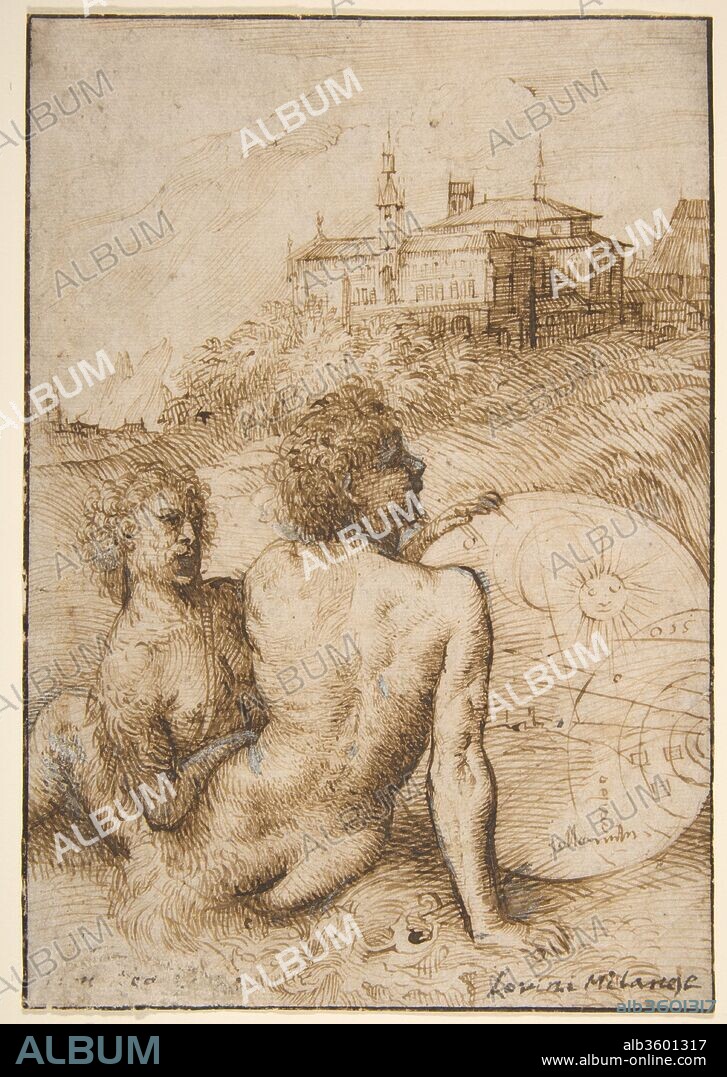alb3601317
TITIAN (TIZIANO VECELLIO). Two Satyrs in a Landscape

|
Add to another lightbox |
|
Add to another lightbox |



Title:
Two Satyrs in a Landscape
Caption:
Two Satyrs in a Landscape. Artist: Titian (Tiziano Vecellio) (Italian, Pieve di Cadore ca. 1485/90?-1576 Venice). Dimensions: 8-1/2 x 5-15/16 in. (21.6 x 15.1 cm). Date: ca. 1505-10.
Form and expression are brought here into full harmony to create one of the great and rare examples of Venetian Renaissance drawing. Only 35 to 40 drawings attributable to Titian are extant, although he was a tirelessly prolific painter. This famous drawing belongs to an early moment in Titian's work, not far removed from that of the Concert Champêtre (Musée du Louvre, Paris), which was painted around 1509. The concern for rendering both, the spirit and the physical form, of landscape is central to this great period of Venetian art. Titian's use of the pen-and-ink technique is exquisitely pictorial, with varied and freely applied strokes and small dabs of luminous white gouache, lending movement, texture, and tonal unity to the scene. His superb mastery of the pen is everywhere apparent, from the foreground figures built with broadly sculptural effects of chiaroscuro, to the background landscape in which the forms of architecture and nature ineffably dissolve in the distant haze of the horizon. The poetic quality of the drawing is achieved through this subtlety of technique and a certain elusiveness of mood. The two satyrs are entwined, but look away into the distance beyond the astrological disk prominently displayed at the right.
(Carmen C. Bambach, 2014).
Technique/material:
Pen and brown ink, highlighted with white gouache on fine, off-white laid paper
Museum:
Metropolitan Museum of Art, New York, USA
Credit:
Album / Metropolitan Museum of Art, NY
Releases:
Model: No - Property: No
Rights questions?
Rights questions?
Image size:
2758 x 3883 px | 30.6 MB
Print size:
23.4 x 32.9 cm | 9.2 x 12.9 in (300 dpi)
 Pinterest
Pinterest Twitter
Twitter Facebook
Facebook Copy link
Copy link Email
Email

